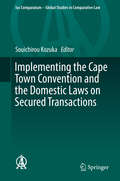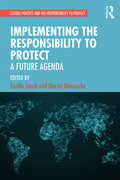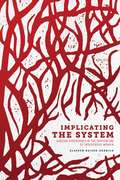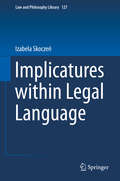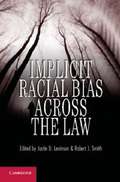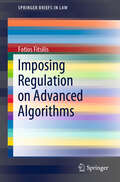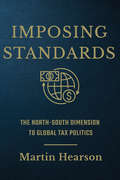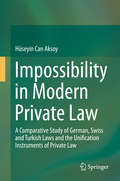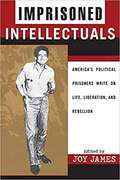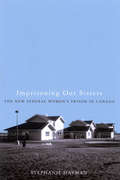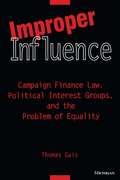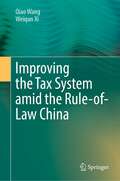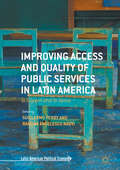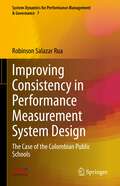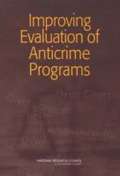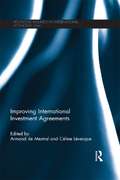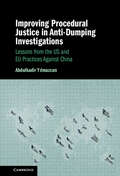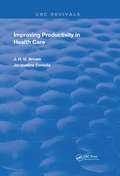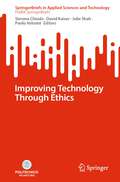- Table View
- List View
Implementing the Cape Town Convention and the Domestic Laws on Secured Transactions
by Souichirou KozukaThis book offers the analysis of the relationship between the Cape Town Convention and national laws on secured transactions. The first part of the book considers why national implementation is so important in the case of the Cape Town Convention and identifies how innovative the Convention is as a uniform law instrument. The second part includes chapters on those states that are Parties to the Cape Town Convention, which analyse how the Convention is implemented under the domestic law. The third part includes chapters on those states that are not Parties to the Convention, which compare their national laws and the Convention to find unique features of the Cape Town Convention's rules. The fourth part discusses the meaning of Protocols on aircraft, railway rolling stock and space assets from the practitioner's point of view. As a whole, the book offers insights into the new stage of uniform private law and shows the need for further examination of the subject, which will be essential for international and national legislators, academics of comparative and international private law as well as practitioners who are the users of the uniform law regime.
Implementing the Responsibility to Protect: A Future Agenda (Global Politics and the Responsibility to Protect)
by Cecilia Jacob Martin MenneckeThis book examines core thematic approaches to the Responsibility to Protect (R2P) and analyzes case studies regarding the implementation of this important global norm. The volume analyzes this process at international, regional and local levels, and identifies an urgent need to progress from conceptual debates towards implementation in practice, in order to understand how to operationalize the preventive dimension of the R2P. It argues that R2P implementation necessarily entails the efforts of actors across governance levels, and that it is more effective when integrated into existing sites of practice aimed at strengthening human rights and accountability for populations in atrocity risk situations. The book addresses R2P implementation in the context of agendas such as resilience, gender, development cooperation, human rights, transitional justice, peacekeeping and civil-military relations. It details progress and challenges for implementation in the United Nations, regionally in Africa, Europe and Southeast Asia, and through national atrocity prevention architectures. The volume provides readers with a breadth of understanding in terms of both the development and current status of the R2P norm, and practical tools for advancing its implementation. This book will be of much interest to students of the Responsibility to Protect, Human Rights, Peace Studies, and International Relations in general.
Implicating the System: Judicial Discourses in the Sentencing of Indigenous Women
by Elspeth Kaiser-DerrickIndigenous women continue to be overrepresented in Canadian prisons; research demonstrates how their overincarceration and often extensive experiences of victimization are interconnected with and through ongoing processes of colonization. "Implicating the System: Judicial Discourses in the Sentencing of Indigenous Women" explores how judges navigate these issues in sentencing by examining related discourses in selected judgments from a review of 175 decisions. The feminist theory of the victimization-criminalization continuum informs Elspeth Kaiser-Derrick’s work. She examines its overlap with the Gladue analysis, foregrounding decisions that effectively integrate gendered understandings of Indigenous women’s victimization histories, and problematizing those with less contextualized reasoning. Ultimately, she contends that judicial use of the victimization-criminalization continuum deepens the Gladue analysis and augments its capacity to further its objectives of alternatives to incarceration. Kaiser-Derrick discusses how judicial discourses about victimization intersect with those about rehabilitation and treatment, and suggests associated problems, particularly where prison is characterized as a place of healing. Finally, she shows how recent incursions into judicial discretion, through legislative changes to the conditional sentencing regime that restrict the availability of alternatives to incarceration, are particularly concerning for Indigenous women in the system.
Implicatures within Legal Language (Law and Philosophy Library #127)
by Izabela SkoczeńThis book proposes a novel, descriptive theory that unveils the linguistic mechanisms lurking behind judicial decisions. It offers a comprehensive account of the ongoing debate, as well as a novel solution to the problem of understanding legal pragmatics.Linguistic pragmatics is based on a theory created by Paul Grice, who observed that people usually convey more than just the amalgam of the meaning of the words they use. He labeled this surplus of meaning a “conversational implicature.” This book addresses the question of whether implicatures occur in the legal language, firstly illustrating why the classic Gricean theory is not applicable (without substantial modification) to the description of legal language and proposing a novel approach based on a modification of Andrei Marmor’s “strategic speech.” Subsequently, it analyzes neo-Gricean theories and their limited use for describing the mechanisms of legal interpretation, and discusses the possibility of pragmatic enrichment of legal content as well as the notion of completeness of a legal proposition. Lastly, it illustrates how the developed theory works in practice, with examples from penal and civil law cases. The book is helpful to legal practitioners, since it provides insights into the reasons for and linguistic mechanisms behind courts’ decisions, but also to philosophers of law, philosophers of language, linguists and non-experts wishing to better understand the mechanisms of legal decision making.
Implicit Racial Bias across the Law
by Robert J. Smith Justin D. LevinsonDespite cultural progress in reducing overt acts of racism, stark racial disparities continue to define American life. This book is for anyone who wonders why race still matters and is interested in what emerging social science can contribute to the discussion. The book explores how scientific evidence on the human mind might help to explain why racial equality is so elusive. This new evidence reveals how human mental machinery can be skewed by lurking stereotypes, often bending to accommodate hidden biases reinforced by years of social learning. Through the lens of these powerful and pervasive implicit racial attitudes and stereotypes, Implicit Bias across the Law examines both the continued subordination of historically disadvantaged groups and the legal system's complicity in the subordination.
Implied Consent and Sexual Assault
by Michael PlaxtonIn R. v. Ewanchuk, the Supreme Court of Canada held that sexual touching must be accompanied by express, contemporaneous consent. In doing so, the Court rejected the idea that sexual consent could be "implied." Ewanchuk was a landmark ruling, reflecting a powerful commitment to women's equality and sexual autonomy. In articulating limits on the circumstances under which women can be said to "consent" to sexual touching, however, the decision also restricts their autonomy - specifically, by denying them a voice in determining the norms that should govern their intimate relationships and sexual lives. In Implied Consent and Sexual Assault, Michael Plaxton argues that women should have the autonomy to decide whether, and under what circumstances, sexual touching can be appropriate in the absence of express consent. Though caution should be exercised before resurrecting a limited doctrine of implied consent, there are reasons to think that sexual assault law could accommodate a doctrine without undermining the sexual autonomy or equality rights of women. In reaching this conclusion, Plaxton challenges widespread beliefs about autonomy, consent, and the objectives underpinning the offence of sexual assault in Canada. Drawing upon a range of contemporary criminal law theorists and feminist scholars, Implied Consent and Sexual Assault reconsiders the nature of mutuality in a world dominated by gender norms, the proper scope of criminal law, and the true meaning of sexual autonomy.
Implied Consent and Sexual Assault: Intimate Relationships, Autonomy, and Voice
by Michael PlaxtonIn R. v. Ewanchuk, the Supreme Court of Canada held that sexual touching must be accompanied by express, contemporaneous consent. In doing so, the Court rejected the idea that sexual consent could be "implied." Ewanchuk was a landmark ruling, reflecting a powerful commitment to women's equality and sexual autonomy. In articulating limits on the circumstances under which women can be said to "consent" to sexual touching, however, the decision also restricts their autonomy - specifically, by denying them a voice in determining the norms that should govern their intimate relationships and sexual lives. In Implied Consent and Sexual Assault, Michael Plaxton argues that women should have the autonomy to decide whether, and under what circumstances, sexual touching can be appropriate in the absence of express consent. Though caution should be exercised before resurrecting a limited doctrine of implied consent, there are reasons to think that sexual assault law could accommodate a doctrine without undermining the sexual autonomy or equality rights of women. In reaching this conclusion, Plaxton challenges widespread beliefs about autonomy, consent, and the objectives underpinning the offence of sexual assault in Canada. Drawing upon a range of contemporary criminal law theorists and feminist scholars, Implied Consent and Sexual Assault reconsiders the nature of mutuality in a world dominated by gender norms, the proper scope of criminal law, and the true meaning of sexual autonomy.
Imposing Regulation on Advanced Algorithms (SpringerBriefs in Law)
by Fotios FitsilisThis book discusses the necessity and perhaps urgency for the regulation of algorithms on which new technologies rely; technologies that have the potential to re-shape human societies. From commerce and farming to medical care and education, it is difficult to find any aspect of our lives that will not be affected by these emerging technologies. At the same time, artificial intelligence, deep learning, machine learning, cognitive computing, blockchain, virtual reality and augmented reality, belong to the fields most likely to affect law and, in particular, administrative law. The book examines universally applicable patterns in administrative decisions and judicial rulings. First, similarities and divergence in behavior among the different cases are identified by analyzing parameters ranging from geographical location and administrative decisions to judicial reasoning and legal basis. As it turns out, in several of the cases presented, sources of general law, such as competition or labor law, are invoked as a legal basis, due to the lack of current specialized legislation. This book also investigates the role and significance of national and indeed supranational regulatory bodies for advanced algorithms and considers ENISA, an EU agency that focuses on network and information security, as an interesting candidate for a European regulator of advanced algorithms. Lastly, it discusses the involvement of representative institutions in algorithmic regulation.
Imposing Standards: The North-South Dimension to Global Tax Politics (Cornell Studies in Money)
by Martin HearsonIn Imposing Standards, Martin Hearson shifts the focus of political rhetoric regarding international tax rules from tax havens and the Global North to the damaging impact of this regime on the Global South. Even when not exploited by tax dodgers, international tax standards place severe limits on the ability of developing countries to tax businesses, denying the Global South access to much-needed revenue. The international rules that allow tax avoidance by multinational corporations have dominated political debate about international tax in the United States and Europe, especially since the global financial crisis of 2007–2008.Hearson asks how developing countries willingly gave up their right to tax foreign companies, charting their assimilation into an OECD-led regime from the days of early independence to the present day. Based on interviews with treaty negotiators, policymakers and lobbyists, as well as observation at intergovernmental meetings, archival research, and fieldwork in Africa and Asia, Imposing Standards shows that capacity constraints and imperfect negotiation strategies in developing countries were exploited by capital-exporting states, shielding multinationals from taxation and depriving nations in the Global South of revenue they both need and deserve.Thanks to generous funding from the Gates Foundation, the ebook editions of this book are available as Open Access volumes from Cornell Open (cornellopen.org) and other repositories.
Impossibility in Modern Private Law
by Hüseyin Can AksoyThis book provides an analysis of the treatment of impossibility in modern private law. The author explains the regulation of impossibility in German, Swiss and Turkish laws with a comparative analysis of the subject under (i) the United Nations Convention on International Sale of Goods (CISG), (ii) UNIDROIT Principles of International Commercial Contracts (PICC), (iii) Principles of European Contract Law (PECL also known as the Lando-Principles), (iv) Draft Common Frame of Reference (DCFR) and (iv) Common European Sales Law (CESL).
Imprisoned Intellectuals: America's Political Prisoners Write on Life, Liberation, and Rebellion (Transformative Politics Series)
by Joy JamesPrisons constitute one of the most controversial and contested sites in a democratic society. The United States has the highest incarceration rate in the industrialized world, with over 2 million people in jails, prisons, and detention centers; with over three thousand on death row, it is also one of the few developed countries that continues to deploy the death penalty. International Human Rights Organizations such as Amnesty International have also noted the scores of political prisoners in U.S. detention. <p><p> This anthology examines a class of intellectuals whose analyses of U.S. society, politics, culture, and social justice are rarely referenced in conventional political speech or academic discourse. Yet this body of outlawed 'public intellectuals' offers some of the most incisive analyses of our society and shared humanity. Here former and current U.S. political prisoners and activists-writers from the civil rights/black power, women's, gay/lesbian, American Indian, Puerto Rican Independence and anti-war movements share varying progressive critiques and theories on radical democracy and revolutionary struggle. <p><p> This rarely-referenced 'resistance literature' reflects the growing public interest in incarceration sites, intellectual and political dissent for social justice, and the possibilities of democratic transformations. Such anthologies also spark new discussions and debates about 'reading'; for as Barbara Harlow notes: 'Reading prison writing must. . . demand a correspondingly activist counterapproach to that of passivity, aesthetic gratification, and the pleasures of consumption that are traditionally sanctioned by the academic disciplining of literature.'―Barbara Harlow [1] 1. Barbara Harlow, Barred: Women, Writing, and Political Detention (New England: Wesleyan University Press, 1992). Royalties are reserved for educational initiatives on human rights and U.S. incarceration.
Imprisoning Our Sisters
by Stephanie HaymanUsing extensive interviews and previously unexplored archival material, Hayman examines the work of the Task Force on Federally Sentenced Women and assesses the opening of the first three prisons. She questions the notion that prisons can simultaneously "heal" and punish, suggesting that the power of "the prison" inevitably triumphs over the good intentions of reformers.
Imprisoning Our Sisters: The New Federal Women's Prisons in Canada
by Stephanie HaymanUsing extensive interviews and previously unexplored archival material, Hayman examines the work of the Task Force on Federally Sentenced Women and assesses the opening of the first three prisons. She questions the notion that prisons can simultaneously "heal" and punish, suggesting that the power of "the prison" inevitably triumphs over the good intentions of reformers.
Imprisonment of the Elderly and Death in Custody: The Right to Review
by Aleksandr KhechumyanOver the past few decades, there has been a sharp increase in the number of elderly prisoners, and hence a rise in the number of prisoners dying in custody. In this book, Khechumyan questions whether respect for human dignity would justify releasing older and seriously ill prisoners. He also examines the normative justifications which could limit the administration of the imprisonment of the elderly and seriously ill. Khechumyan argues that factors such as a prisoner’s age and health could alter the balance between the legitimate goals of punishment, rendering the continued imprisonment ‘grossly disproportionate’. To address these issues, Articles 3 and 5 of the European Convention of Human Rights are extensively examined. This book is a valuable resource for academics, researchers and policy-makers working in the fields of Criminal Justice, Human Rights Law, and Gerontology.
Improper Influence: Campaign Finance Law, Political Interest Groups, and the Problem of Equality
by Thomas GaisWhy is there still so much dissatisfaction with the role of special interest groups in financing American election campaigns, even though no aspect of interest group politics has been so thoroughly regu-lated and constrained? This book argues that part of the answer lies in the laws themselves, which prevent many hard-to-organize citizen groups from forming effective political action committees (PACs), while actually helping business groups organize PACs. Thomas L. Gais points out that many laws that regulate group involvement in elections ignore the real difficulties of political mobilization, and he concludes that PACs and the campaign finance laws reflect a fundamental discrepancy between grassroots ideals and the ways in which broadly based groups actually get organized. ". . . . of fundamental scholarly and practical importance. The implications for 'reform' are controversial, flatly contradicting other recent reform proposals . . . . I fully expect thatImproper Influencewill be one of the most significant books on campaign finance to be published in the 1990s. " --Michael Munger,Public Choice "It is rare to find a book that affords a truly fresh perspective on the role of special interest groups in the financing of U. S. elections. It is also uncommon to find a theoretically rigorous essay confronting a topic usually grounded in empirical terms. . . . Improper Influencescores high on both counts and deserves close attention from students of collective action, campaign finance law, and the U. S. political process more generally. " --American Political Science Review Thomas L. Gais is Senior Fellow, The Nelson A. Rockefeller Institute of Government, State University of New York.
Improving the Tax System amid the Rule-of-Law China
by Qiao Wang Weiqun XiThis book discusses China’s tax system, presenting a comprehensive and systematic research based on a multidisciplinary approach involving economics, finance, political science, sociology, law, public administration, history, and econometrics.With China moving toward the rule of law, this book proposes reforms to the tax laws and the stratified governance with a view to achieving tax neutrality, law-based taxation, tax equality and tax burden stability. It focuses on clarifying the implications, extension, nature, and features of a law-based tax system as well as the logical relationships between the optimization of the tax system structure, modern governance, law-based tax administration, as well as the tax-sharing system of tax collection and the rule of tax law. It suggests that optimizing the tax structure, reforming the tax-sharing system, improving local taxes, and restructuring the tax collection and management system will push China's tax system toward sound design and rule of law.This book is intended for scholars specializing in China’s tax system and general readers interested in China’s economy.
Improving Access and Quality of Public Services in Latin America: To Govern and To Serve (Latin American Political Economy)
by Guillermo Perry and Ramona Angelescu NaqviThis book presents insights from several countries in Latin America and beyond on how to organize critical sectors, such as education, roads and water, to improve quality, access and affordability. The innovative, multi-disciplinary studies in this volume discuss the outcomes of decentralization, school autonomy, participatory budgeting at the local level and other accountability mechanisms. Rich quantitative analyses are complemented and enhanced by insights from interviews and quotes from those on the front lines: politicians, bureaucrats and service providers; as well as a variety of case-studies focusing on wider political economy questions, on the intricacies of political competition and governance reform, and on public spending efficiency in countries as varied as Colombia, Peru, Chile and Uruguay. As the authors demonstrate, Latin America has much to share with the rest of the world in terms of governance and public service delivery experiments and learnings.
Improving Consistency in Performance Measurement System Design: The Case of the Colombian Public Schools (System Dynamics for Performance Management & Governance #7)
by Robinson Salazar RuaThis book analyzes behavioral distortions in public schools and delineates outcome-based performance measurement systems that can prevent and mitigate them. An instrumental view of dynamic performance management (DPM) is used to support the endeavor by identifying how performance drivers affect end results of outcome and output, how end results affect strategic resources, and how strategic resources and benchmarks define the dynamics of performance drivers. This approach is also used to promote a shift from an output-oriented to an outcome-oriented view in performance management, with the aim of achieving sustainable results in the long term. The book also includes a comprehensive literature review at the end of each chapter, intended to strengthen readers’ knowledge and encourage further research. Given its scope, the book will appeal to graduate students in public management, researchers in performance management, system dynamics, and education, and decision-makers in public schools.
Improving Evaluation of Anticrime Programs
by National Research Council of the National AcademiesAlthough billions of dollars have been spent on crime prevention and control programs during the past decade, scientifically strong impact evaluations of these programs are uncommon in the context of the overall number of programs that have received funding. Improving Evaluation of Anticrime Programs is designed as a working guide for agencies and organizations responsible for program evaluation, for researchers who must design scientifically credible evaluations of government and privately sponsored programs, and for policy officials who are investing more and more in the concept of evidence-based policy to guide their decisions in crucial areas of crime prevention and control.
Improving Governance and Fighting Corruption in the Baltic and CIS Countries: The Role of the IMF
by Thomas Wolf Emine GurgenA report from the International Monetary Fund.
Improving International Investment Agreements (Routledge Research in International Economic Law)
by Armand De Mestral Céline LévesqueThis book presents the reflections of a group of researchers interested in assessing whether the law governing the promotion and protection of foreign investment reflects sound public policy. Whether it is the lack of "checks and balances" on investor rights or more broadly the lack of balance between public rights and private interests, the time is ripe for an in-depth discussions of current challenges facing the international investment law regime. Through a survey of the evolution in IIA treaty-making and an evaluation from different perspectives, the authors take stock of developments in international investment law and analyze potential solutions to some of the criticisms that plague IIAs. The book takes a multidisciplinary approach to the subject, with expert analysis from legal, political and economic scholars. The first part of the book traces the evolution of IIA treaty-making whilst the other three parts are organised around the concepts of efficiency, legitimacy and sustainability. Each contributor analyzes one or more issues related to substance, treaty negotiation, or dispute resolution, with the ultimate aim of improving IIA treaty-making in these respects. Improving International Investment Agreements will be of particular interest to students and academics in the fields of International Investment Law, International Trade Law, Business and Economics.
Improving Procedural Justice in Anti-Dumping Investigations: Lessons from the US and EU Practices Against China
by Abdulkadir YilmazcanBy synthesizing both theoretical and empirical insights, this book offers a distinctive perspective on procedural justice within the context of anti-dumping investigations. The book highlights the disjunction between the provisions outlined in the World Trade Organization's Anti-Dumping Agreement (ADA) and the practical encounters faced by stakeholders such as exporters, regulatory bodies, and legal experts affiliated with the WTO. Employing a mixed-method approach, the research encompasses a comprehensive doctrinal analysis of procedural complexities alongside empirical investigations involving key stakeholders such as WTO legal experts, Chinese exporters, and investigating authorities. Furthermore, this book underscores the potential for enhancing procedural justice through either a comprehensive reform of the ADA or concrete measures such as a standardized anti-dumping questionnaire. Such improvements offered in the book have the potential to curtail the misuse of anti-dumping investigations, consequently mitigating a substantial number of disputes that might be brought before the WTO's Dispute Settlement Mechanism.
Improving Productivity In Health Care (Routledge Revivals)
by Jack H.U. Brown Jacqueline ComolaFirst Published in 1988, this book offers a full, comprehensive guide to improving and streamlining productivity in health care. Carefully compiled and filled with a vast repertoire of notes, diagrams, and references this book serves as a useful reference for students of medicine, student nurses, and other practitioners in their respective fields.
Improving Technology Through Ethics (SpringerBriefs in Applied Sciences and Technology)
by David Kaiser Julie Shah Simona Chiodo Paolo VolontéThis book deals with the ethics of technology and addresses specific ethical problems related to some emerging technologies, mainly in the field of computer science (from machine learning models to extracting value from data to human–robot interaction). The contributions are authored mainly by scholars in ICT and other engineering fields who reflect on ethical and societal issues emerging from their own research activity. Thus, rather uniquely, the work overcomes the traditional divide between pure ethical theory that disregards what practitioners do and mere R&D practice that ignores what theorists conceptualize. Conversely, the reader is enabled to understand what ethics means when it is actually put into work by engineering researchers. The book arises from a joint program between MIT and Politecnico di Milano aimed at training early career researchers in addressing the ethical issues of technology and critically reflecting on the social impacts of the emerging, and even disruptive, technologies they are currently developing through their novel research. Overall, it aims at spreading the task of developing technologies that, from the beginning, are designed to be responsible for human life, society, and nature.
Improving The Presumptive Disability Decision-making Process For Veterans
by Institute of Medicine of the National AcademiesProduced by a committee of the Institute of Medicine, this report describes the current decision-making process for the provision of appropriate health care and disability compensation for veterans with health conditions that develop after military service which, in the absence of scientific evidence to create a complete link, are presumed to be connected to their military service. The report contains a brief history of presumptive disability decisions, description of the decision-making process, legislative background on presumptions, and evaluations of selected case studies of specific exposures and illnesses, and proposes a revised framework for building stronger scientific evidence into the process for making presumptive decisions in the future. The 13 appendices contain information organized by the Committee and Institute of Medicine to assist readers in understanding the background and issues; three of the appendices are in the book and ten are on an accompanying CD-ROM. No subject index. Annotation ©2009 Book News, Inc. , Portland, OR (booknews. com)
